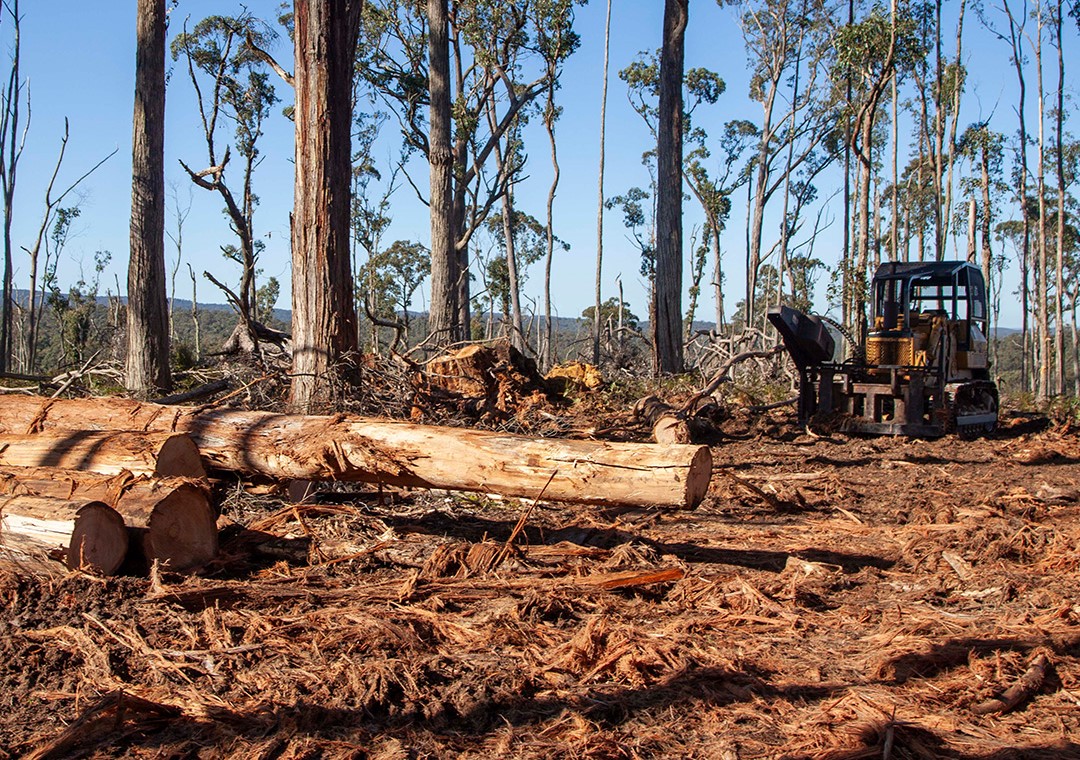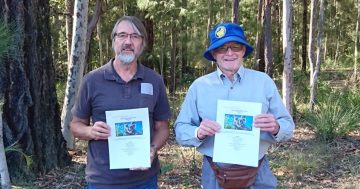
Since the Victorian Government’s ban on native forest logging within public land came into effect on 1 January, the practice has cleared around 187 hectares of private land. Photo: VNPA.
Native forests equivalent in size to 40 Melbourne Cricket Grounds (187 ha) have been cleared by loggers on private land, since a ban put a stop to the practice on public land at the beginning of the year.
An investigation led by the Victorian National Parks Association (VNPA) found over a dozen projects across the state in which private landowners had either applied to log, or already cleared native forest. The revelations have pushed Executive Director Matt Ruchel to join other conservation groups in calling for the Victorian Government to end native forest logging on private land.
“The government has largely closed the door on native forest logging on public land but left the window wide open on private land,” he said.
“Environment Minister Steve Dimopoulos must act immediately to close all native forest logging loopholes, including on private land.”
The Victorian Office of the Conservation Regulator is investigating alleged breaches on public land, but has no power to intervene on private land.
VNPA and other community groups have already written to 57 regional and peri-urban local governments responsible for issuing permits to log on private land.
By removing the responsibility from local councils or amending state planning policies, Mr Ruchel said the government could stop hundreds of thousands of hectares of native forest habitat on private land from being logged.
“Most regional shires do not have the resources or capacity to properly understand, regulate and oversee complex impacts from native forest logging,” said the VNPA Executive Director. “It seems unfair that they are lumped with this onerous responsibility.”

Critically endangered Leadbeater’s possums have been found under 100 metres away from native forest logging sites on private land. Photo: VNPA.
Recently the Australian Koala Foundation (AKF) also released its findings on the national logging industry, with chair Deborah Tabart OAM calling for the urgent repeal of regional forest agreements (RFAs).
“RFAs are the best friend of Australia’s logging industry,” Ms Tabart said. “They have not only proven to be a toothless tiger for biodiversity conservation, but also the single biggest risk to the survival of Australia’s beloved koalas.
“The Australian Koala Foundation will not rest until RFAs are repealed and a Koala Protection Act is enacted.”
According to the AKF, RFAs are agreements between the federal and state governments that can override the Environment Protection and Biodiversity Conservation Act 1999. They can authorise the logging of native forests on public and private land, and even within national parks, without following the usual environmental approval process.
Ms Tabart said she had written to Prime Minister Anthony Albanese on repealing RFAs, which have just been extended in NSW until 2039.
“It is laughable to think that the proposed Great Koala National Park could have any impact whatsoever when RFAs continue to condone the decimation of trees within its boundaries,” she said.
“The logging industry has such a stronghold over our political leaders that the wellbeing of endangered species and their habitat is entirely overlooked.”
Several threatened native animals are at risk from these Victorian private logging operations, including the critically endangered Leadbeater’s possum.
While the Leadbeater’s Possum Action Statement prescribes 200-metre buffer zones around confirmed logging sites, this doesn’t apply to operations on private land.
“The State Government shut down native forest logging because it had been caught out destroying endangered wildlife habitat, validated by Federal and Supreme court cases,” said Friends of Leadbeater’s Possum (FLbP) President Steve Meacher. “To find loggers are plundering the same critical habitat on private land beggars belief.”
A National Recovery Plan for Leadbeater’s possum was released in March, confirming “habitat critical to the survival of the species should not be destroyed or modified and be appropriately managed to support long-term recovery of the species”.
“Our native forests need time to regenerate and recover after many decades of unsustainable logging,” said Mr Meacher.
“The recovery plan is meaningless if all levels of government, including local councils, do not effectively implement it.”





